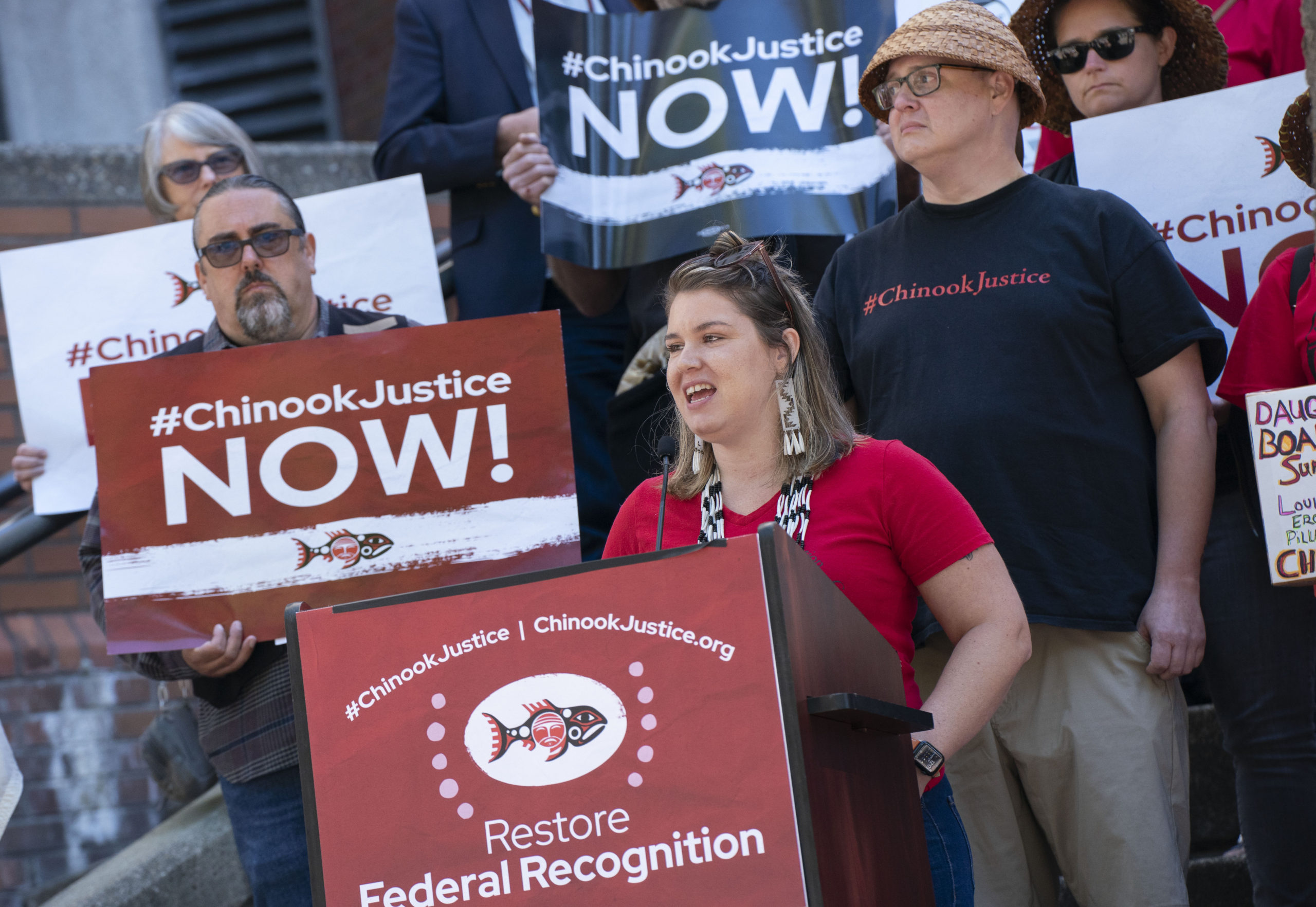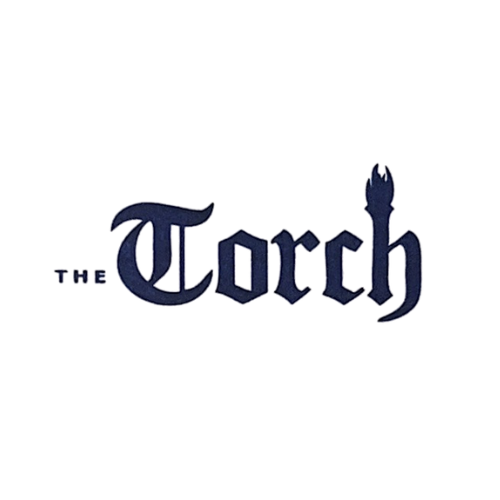In chinuk-wawa and English
chinuk-wawa
saya anqati shawash-tilixam ɬaska miɬayt kʰapa uk iliʔi kʰanawi-rawnd qʰa uk imaɬ chaku-kʰanumakwst kʰapa saltsəqw. alta ɬaska miɬayt kʰapa qwinəm shawash-tilixam-iliʔi—kathlamet, lower chinook, willapa, wahkiakum, pi clatsop. kʰanawi-kʰanumakwst, chinuk-tilixam ɬaska. ukuk san, 3000 shawash-tilixam ɬaska. dret wik-ɬush pus wik shawash-la-pipa tilixam ɬaska. nsayka munk-t’səm yakwa pus wawa, skukum-kakwa: ɬush pus munk shawash-la-pipa tilixam ɬaska. wəx̣t, nsayka tiki wawa mayka pus ma munk-yeʔlan kʰapa uk pʰayt pus ɬaska chaku-kakwa. pus aɬqi kakwa, ayaq ɬaska iskam bastən-tayi-iliʔi dala uk dret ɬaska tiki pus ɬush-miɬayt.
kʰapa 1851 ixt iliʔi-la-pipa tayi ya chaku pus wawa kʰapa chinuk-tilixam. anson dart yaka nim. uk chinuk-tilixam ɬas tiki miɬayt kʰapa ɬas anqati-iliʔi. ɬas tiki miɬayt wik-saya uk anqati-tilixam ɬas bon. ɬas palach sitkum ɬas iliʔi, bət ɬas tiki munk lashash pi iskam samən kakwa anqati. dart ya munk nawitka. wəx̣t, ya munk-k’aw-wawa dala pi makuk-ikta. ɬaska munk iliʔi-la-pipa. dart ya lulu uk iliʔi-la-pipa kʰapa washington, dc. uk bastən tayi-tilixam wik ɬas tiki. alta, wik-qʰənchi ɬas munk-nawitka. uk chinuk-tilixam ɬaska ata pi ata, bət hilu dala ɬas nanich, hilu makuk-ikta ɬas iskam.
hayu, hayu kʰul chinuktilixam ɬas munk-pus iskam dala uk bastən tayi-tilixam ɬas munk-k’aw-wawa. wəx̣t ɬas tiki iskam shawash-la-pipa. alta kʰapa 2001, pus bill clinton bastən tayi-man yaka, uk chinuk-tilixam ɬas iskam shawash-la-pipa. bət wik-lili, kʰapa 2002, george w. bush ya chaku tayi-man, pi ya iskam-k’ilapay uk shawash-la-pipa.
dret ɬush pus munk shawash-la-pipa tilixam ɬaska. kʰanawi x̣luyma shawash tilixam ɬaska miɬayt kakwa wik-saya kʰapa yakwa, shawash-la-pipa tilixam ɬaska. kʰəltəs chinuk-tilixam wik shawash-la-pipa tilixam ɬaska, bət shawash tilixam ɬaska. pus wik shawash-la-pipa tilixam ɬaska, x̣awqaɬ ɬaska ɬush-nanich kʰanawi ɬaska tilixam. pus shawash-la-pipa tilixam ɬaska, ayaq ɬaska ɬush-nanich kʰanawi uk tilixam ɬaska iɬwəli pi təmtəm. ayaq ɬaska palach haws kʰapa ulman-tilixam pi ɬush-nanich tənas. wəx̣t ɬaska munk-kəmtəks hayu tilixam. pus ɬaska chaku shawash-la-pipa tilixam, ayaq ɬaska munk-manaqi-ɬush ɬaska hom pus hayash sax̣ali-tsəqw, wəx̣t. pus shawash-la-pipa tilixam ɬaska, ayaq ɬaska munk ɬush-miɬayt ɬaska tilixam.
ɬush mayka nanich chinuk-tilixam ɬaska t’wax̣-uyxat pipa. kakwa mayka chaku-kəmtəks manaqi hayu, pi ayaq mayka munk-t’səm ma nim kʰapa ɬaska petition. alta ɬush mayka munk-t’səm pipa pi mash kʰapa bastən tayi-tilixam. ɬush mayka wawa ɬaska, “chinuk-tilixam, shawash-tilixam ɬaska. alta ɬush pus munk shawash-la-pipa tilixam ɬaska!” pus ayaq ma palach dala kʰapa chinuk-tilixam, ɬush ma munk kakwa. wəx̣t, ɬush mayka wawa hayu tilixam. wawa mayka shiksh, mayka mama, mayka munk-kəmtəks-tilixam, mayka chxi-wawa-pipa, pi kʰanawi tilixam uk q’at mayka kʰapa t’wax̣-uyxat. wawa ɬaska ikta alta mayka kəmtəks. ɬush pus ɬaska wəx̣t ɬas munk-yeʔlan.
leyn chinuk-skul tilixam ɬaska munk-t’səm

English
From time immemorial indigenous peoples have lived in the lands around the mouth of the Columbia River. Today there are five tribes—Kathlamet, Lower Chinook, Willapa, Wahkiakum, and Clatsop—and together they make up the Chinook Indian Nation, with 3000 enrolled members. Reprehensibly, the US government does not give federal recognition to the Chinook Indian Nation. We write this letter to decry that wrong and to ask you to help the Chinook Indian Nation in their fight for federal recognition. Concretely, being federally recognized would provide their communities access to crucial federal funding.
In 1851 a treaty official came to speak with the Chinook people. His name was Anson Dart. The Chinook wanted to continue living on their land, near the bones of their ancestors. They offered to give up some of their land, but asked to retain hunting and fishing rights. Dart agreed. He also promised payment in cash and goods. They signed a treaty, and Dart took it to Washington, DC. But Congress didn’t like the deal, and they never ratified it. The Chinook people waited and waited, but they never saw the promised money or the goods.
For many, many years, The Chinook tried to get the money promised to them by the US government. They also sought federal recognition. Finally in 2001, when Bill Clinton was president, Chinook Indian Nation won federal recognition. But a short time later, in 2002, George W. Bush came into office, and he took the recognition away again.
It would be very good if they were federally recognized. All of the other Indigenous groups that live around here are federally recognized. Only Chinook Indian Nation is not federally recognized, but they are Indigenous people. If they aren’t federally recognized, they can’t look after all of their people. If they are federally recognized, they can look after everybody’s body and spirit. They can provide elder housing and healthcare and education for their people. If they are federally recognized, they can make their homes better for tsunamis, too. If they are federally recognized, they can make life better for their people.
You should visit the Chinook Indian Nation’s website, to learn more and sign their petition. Then you should write to your government representatives. Tell them that Chinook people are Indigenous people and they must be federally recognized. If you can give money to Chinook Indian Nation, you should do so. Also, you should tell everyone about this. Tell your friends, tell your mom, tell your teachers, tell your newspaper, tell your social media fans. Tell them what you now know. They should all help too!
From Jeanie Lee Baldwin, Madison Fowler-Niblock, Lynn Jeffries, Beth Sheppard, and the LCC CW202



